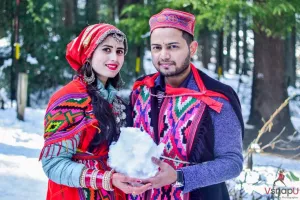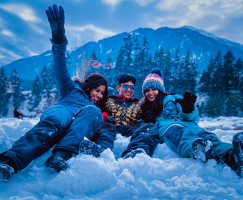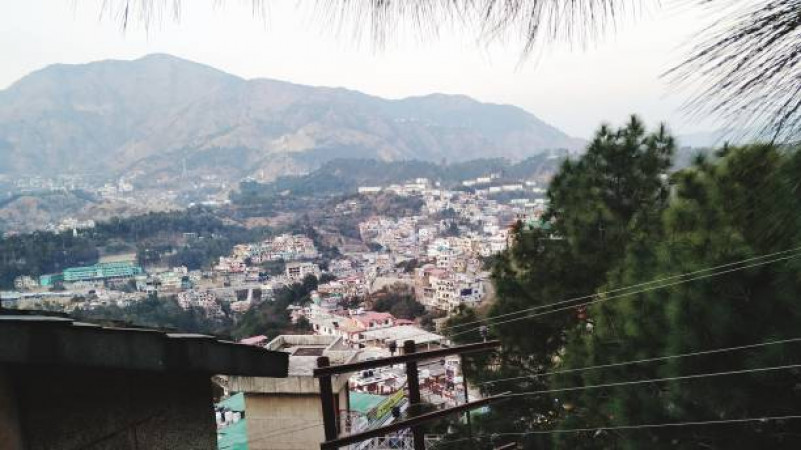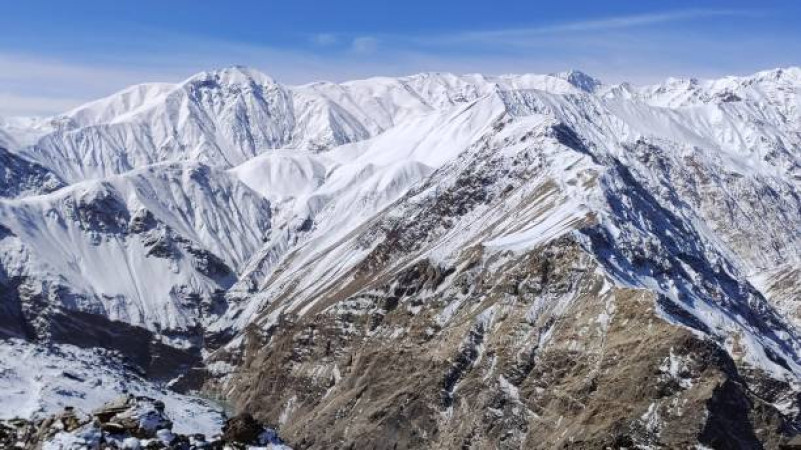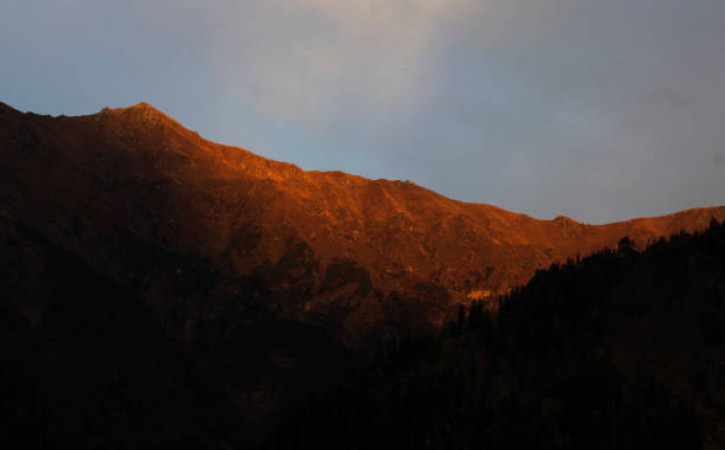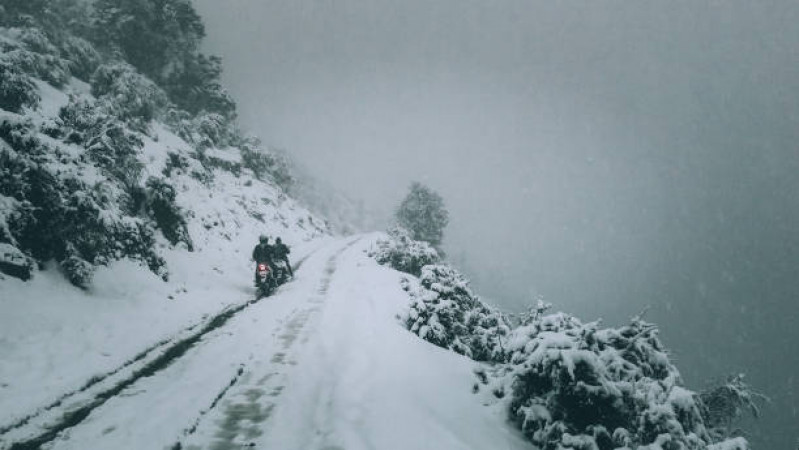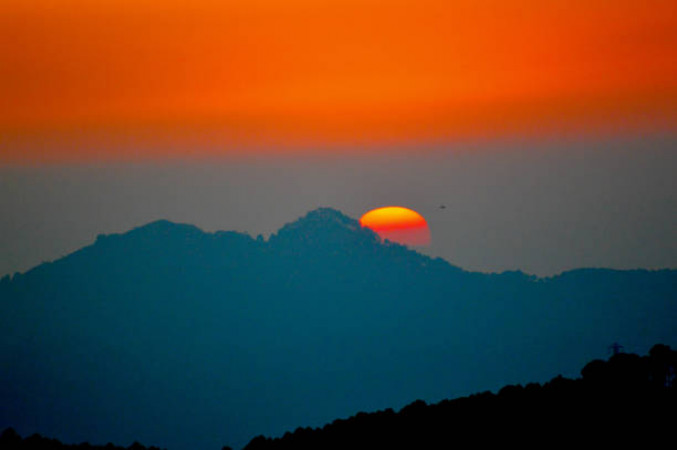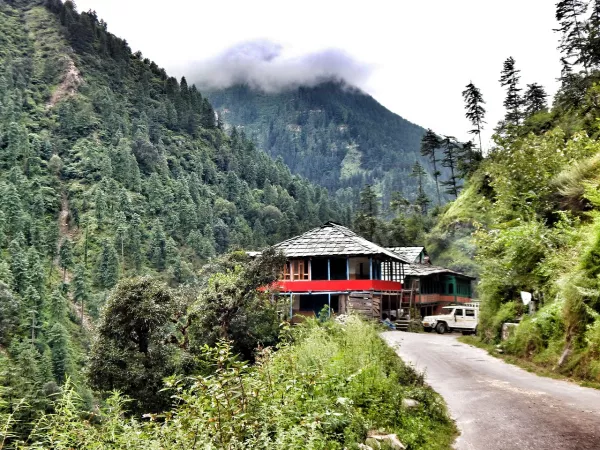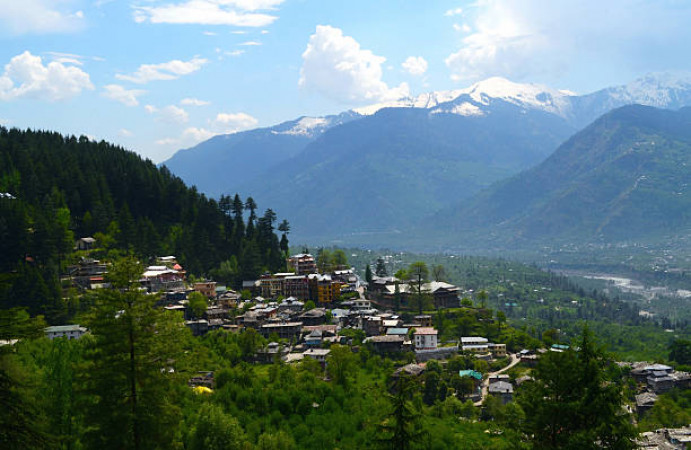
Naggar
Package
2000 to 4000
2000 to 4000
Duration
2 to 4 Days
2 to 4 Days
Best time to visit
Apr-Jun, Sep-Nov
Apr-Jun, Sep-Nov
Theme
Hill Station, Heritage
Hill Station, Heritage
Naggar Travel Guide
Naggar, located in the Kullu district of Himachal Pradesh, India, is a charming destination known for its historical significance, stunning geography, and rich cultural heritage. This picturesque town was the former capital of the Kullu kingdom and is famous for its ancient temples, traditional houses, and breathtaking views of the Himalayas.Top Attractions in Naggar
- Naggar Castle
- Rorich Art Gallery
- Nicholas Roerich Museum
- Gauri Shankar Temple
- Chanderkhani Pass
Naggar is Famous for
Naggar is most famous for its ancient Naggar Castle, a stunning historical monument that offers panoramic views of the surrounding mountains and valleys.Top Attractions in Naggar
- Exploring the Naggar Castle
- Visiting the Rorich Art Gallery
- Exploring the Nicholas Roerich Museum
- Seeking blessings at the Gauri Shankar Temple
- Trekking at Chanderkhani Pass
What's Great about Travelling to Naggar?
- Perfect destination for history and art enthusiasts
- Breathtaking views of the Himalayas
- Rich cultural experiences
What's Not So Great about Travelling to Naggar?
- Limited accommodation options
- Remote location, may require long travel hours
- Weather can be unpredictable
Travel Tips for Naggar
- Carry warm clothing, as the weather can get chilly
- Respect the local customs and traditions
- Book accommodation in advance, especially during peak tourist seasons
Important Naggar trip information
- Ideal Duration: A minimum of 2-3 days to explore the key attractions
- Best Time to Visit: The best time to visit Naggar is during the summer months from March to June
- Nearby Airports and Railway Stations: The nearest airport is Bhuntar Airport, located around 35 km away, and the closest railway station is Chandigarh Railway Station
Top 8 Places to visit in Naggar
Total
17,500
*EXCLUDING APPLICABLE TAXES 5.0 Ratings
( 21 Reviews )
( 21 Reviews )
Per Person
4,250
*EXCLUDING APPLICABLE TAXES Total
20,400
*EXCLUDING APPLICABLE TAXES Per Person
7,125
*EXCLUDING APPLICABLE TAXES FAQ's on Naggar
Q1: What is the best time to visit Naggar?
The best time to visit Naggar is during the months of March to June and September to November when the weather is pleasant, and you can enjoy outdoor activities. Avoid the monsoon season from July to August as heavy rainfall can disrupt travel plans. Winter months from December to February are ideal for snow lovers and winter sports enthusiasts.
Q2: Do I need a visa to travel to Naggar?
Most tourists visiting Naggar need a visa to enter the country. Check with the nearest Naggar embassy or consulate for specific visa requirements based on your nationality. Some countries have visa exemptions or visa-on-arrival facilities for short stays. Ensure your passport has a validity of at least six months beyond your planned stay.
Q3: What are the must-visit attractions in Naggar?
Naggar offers a wealth of attractions, including the Naggar Castle, Roerich Art Gallery, Nicholas Roerich Museum, and the picturesque Naggar Village. Explore the ancient temples like Gauri Shankar Temple and Tripura Sundari Temple, or trek to the stunning Chanderkhani Pass for breathtaking views of the Himalayas.
Q4: Is Naggar a safe place to travel?
Naggar is generally a safe destination for travelers. Exercise normal precautions, avoid isolated areas at night, and be mindful of your belongings. While the crime rate is low, it's advisable to stay informed about local conditions and follow any advisories issued by the authorities.
Q5: What is the local currency in Naggar and can I use credit cards?
The local currency in Naggar is the Indian Rupee (INR). ATMs are widely available in major towns for cash withdrawals, and credit cards are accepted in hotels, restaurants, and larger shops. It's recommended to carry some cash for small purchases and in remote areas where card facilities may be limited.
Q6: What is the local cuisine like in Naggar?
Naggar offers a diverse culinary experience with traditional Himachali dishes like Sidu, Dham, and Chha Gosht. Don't miss trying the local delicacies like Mittha (sweet rice) and Babru (black gram stuffed bread). Vegetarians can savor dishes like Chana Madra and Aloo Palda. Be sure to taste the refreshing local beverages like Lugri (fermented barley drink) and Chhaang (millet-based alcoholic drink).
Q7: What transportation options are available in Naggar?
Transportation in Naggar includes local buses, taxis, and auto-rickshaws for short distances. Renting a car or hiring a private driver is convenient for exploring the region. For longer journeys, consider using state-run buses or booking a private cab. Adventure seekers can opt for trekking or cycling to explore the scenic landscapes at a leisurely pace.
Q8: Are there any cultural norms or etiquette I should be aware of when visiting Naggar?
When visiting Naggar, respect the local customs by dressing modestly, especially when visiting religious sites. Remove your shoes before entering temples and follow the customs of the place. Greet people with a smile and be polite in your interactions. Taking photographs of locals without permission may be considered disrespectful, so always ask for consent. Embrace the local culture by participating in festivals and celebrations respectfully.
Q9: I am a travel agent. How can I buy travel leads of Naggar?
Register yourself as a travel agent at agents.tripclap.com and then you can buy travel leads to Naggar once your account is approved. For more details contact our support team at +91-8069186564 or support@tripclap.com

